|
This is an edited version of an article originally published at https://blog.criterionconferences.com/socialtech/fintech-ecosystem-innovation-disruption-collaboration/#authorprofilebox by Dr Vijaya Thyil, Senior Lecturer in Accounting and Finance at Swinburne Business School, Swinburne University of Technology. You are free to re-edit and re-post it under Creative Commons Attribution 3.0 License terms by giving credit to the author with a link to www.startupcommons.org and the original post. Photo credit: Got Credit, http://www.gotcredit.com/. The photo was originally published on Flickr. It has been used to illustrate this text under Creative Commons Attribution 2.0 License terms. No changes have been made. Technological innovations focusing on the financial industry have led to a rapidly growing new ecosystem called Fintech. A biological ecosystem generally comprises of organisms portraying continuously evolving relationships in a specific climate, leading to complex, non-linear structures. This is exactly what we are seeing with the Fintech entities. The economic climate is just right! The breakdown of trust due to the recent financial crisis has meant that society perceives a brick-and-mortar financial institution no different to a cloud entity! Simultaneously, the extensive use of smartphones and Web 3.0, the uncontrollable rise of consumer debt levels and the massive increase of international financial flows have made the conditions ripe for Fintech to thrive. However, due to the recentness of this ecosystem, the timescale of the entities is in its embryonic stage. That is how quickly a Fintech is born; when and how it dies; how it exits, say through an IPO or acquisition; nested versus non-nested structures; the social impact of Fintechs and so on are continuing to be recognized as they occur. We keep hearing the term ‘disruption’. Why? At first glance, the emerging scenario appears quite simple: Fintech companies – mainly young, entrepreneurial startups – are producing innovative digital technologies to improve the customer experience, efficiency and range of the financial services such as lending, payments, retail and institutional investments, equity financing, and remittances. Entrepreneurship, financial development and digitisation are not new, right? Why then are we referring to a ‘disruption’? Well, the rapid speed at which the innovations are being created, commercialized and embraced by the society globally means that traditional business models of financial services are collapsing or being swiftly dismantled and recreated. One would expect the time period to be disruptive and groundbreaking. How would you describe the collaborators? While the convergence of entrepreneurship, financial services and digitisation necessarily means the involvement and collaboration of multiple entities, the synergy created by the Fintech ecosystem is much larger due to the fundamental, intrinsic and pervasive influence of both financial services and digital technology in our day-to-day lives. So we are seeing startups, seasoned entrepreneurs, local and foreign investors, venture capitalists, financial institutions, insurers, wealth managers, governments, telecom providers, retailers, corporations, consumers, educational institutions and specialist consultants who then get networked into hubs, accelerators, incubators and so on. The birth of new entities in the ecosystem occurs from both serendipity as well as planned innovations. The collaborations are customized, proactive and dynamic. For instance, banks are working with startups to ensure that the innovations produced match their needs, and investors and VCs are willing to direct huge capital towards these startups because of high returns. Furthermore, financial institutions are also starting to provide greater funding for Fintech companies to get access to new products in a shorter timeframe. Governments are very supportive of Fintech due to the increase in jobs, skilled workforce and inflow of capital, and are trying to provide attractive environments for Fintech companies to thrive in. In particular, how is the academia–Fintech collaboration occurring? The academia’s collaboration with the Fintech ecosystem is occurring through several streams. The Entrepreneurship, Finance and Banking, IT and Communications disciplines are supplying the founders of Fintech startups. Universities and centres are providing mentoring programs and boot camps, sponsoring student-led Fintech clubs and allowing the use of their campus spaces for Fintech meets and events. Academic research is evolving around data analytics, cybercrime and fraud protection, network analysis and Fintech business models with new academic and practitioner journals being founded for disseminating the research. Technology companies in turn are partnering with Universities by setting up Chairs focused on expertise in finance, digital technologies and entrepreneurship to facilitate the rapid and smooth knowledge transfer and commercialization of academic research. Are you a consultant or an entrepreneur?
- Learn more about Growth Academy Online Training & Certification Programs Download our startup booklet and watch our videos to learn more about our framework to help startups to grow without "reinventing the wheel" and without wasting lot of time trying to connect the dots. The framework is based on the startup development phases and aims to remove the highest universal risks on the startup journey. In his case study of the impact of the Global Entrepreneurship Monitor (GEM) 2014 Global Report on South Africa’s entrepreneurship policy, Mike Herrington (2015), South Africa GEM Team Leader, says that initially all government agencies launched to promote small business development such as the Small Enterprise Development Agency (SEDA) and the National Youth Development Agency (NYDA) had a “one size fits all” approach. Asked for a recommendation, his team suggested that 2 approaches should be taken: (1) opportunity-driven and (2) necessity-driven entrepreneurship. Later it also actively cooperated with SEDA and other agencies on developing instruments to better address different needs of local entrepreneurs. South Africa’s startup ecosystem could benefit even more if all new entrepreneurship policy projects were consulted with experts. In addition, Herrington points out that more attention should be paid to education. Studies showed that there is a direct link between the level of education and entrepreneurship: the better society is educated, the more it is involved in entrepreneurial activities. Therefore, having one of the lowest startup rates among other developing countries – only 6%–10% – South Africa needs to revise its education system and offer more training opportunities, especially for the youth due to high unemployment rates. The data from Statistics South Africa (Stats SA) report on labour market dynamics between 2008–2014 show that there was an increase of the number of young people at the working-age: from 18.3 million in 2008 to 19.5 million in 2014. “Over this period, the number of employed youth declined by 467 000 to 6 million, while the number of unemployed increased by 319 000 to 3.4 million”. Herrington also mentions that South African entrepreneurs need better labour regulations. For example, there are some legal restrictions on dismissal of unproductive employees. In addition, their work could be much easier and more productive if the IT coverage was better and the internet costs were reduced (Herrington in the GEM 2014 Global Report, p. 72–73). On 10 November 2014, there was launched Startup Nations South Africa, a national startup ecosystem project. In her speech at the official opening ceremony, Lindiwe Zulu, Minister of Small Business Development, identified another need of the local startup ecosystem: “We must consciously strive to build a nation of entrepreneurs and not a nation of job-seekers.” She also stressed that the country needs to develop entrepreneurship culture and closer cooperation at different levels of the ecosystem. In her opinion, this could help to easier solve problems and create a better working environment for entrepreneurs (Pillay, 2014). In her article “An ecosystem in turmoil: inside South Africa’s startup problems”, published on ventureburn.com, Mich Atagana (2013) also mentions that local entrepreneurs need to cooperate more. Her interview with some local tech specialists shows that one of the biggest challenges which the startup tech community faces is a lack of healthy competition. One of her interviewees reveals that some of his colleagues are “overly protective of their ideas and jealous of others’ success”. However, there are some initiatives to change it. For example, Wesley Lynch, CEO and Founder of Snapplify, promotes the idea of healthy competition in his everyday work: he directs his clients to other tech companies whenever he sees that they can offer a better service. He explains his attitude simply: “Any negative competition is bad.” He also draws attention to competition between Johannesburg and Cape Town. In his opinion, local tech startups should compete at the international level or at least in Africa rather than with each other. Looking for new investment opportunities for GrowLab and LX Ventures, Jonathan Bixby went on a business trip to South Africa at the end of 2013. He later shared his reflections on Techvibes’ blog. His post (2013) provides some useful insights into the country’s startup ecosystem from the Canadian entrepreneur’s perspective, which could also contribute to the discussion on local startup needs. His visit to Bandwidth Barn in Cape Town gave him the impression that “South Africa has an interesting startup culture.” He notes that some technology projects which he saw there would attract a lot of tech media attention and investments if the were done in North America. However, it is not the case in South Africa. Local entrepreneurs need to work very hard to secure income every month. He also observes that there is not almost any risk capital in a North American sense: it is rather the equivalent of private equity. South African startups can receive funding only if they have a high profit margin or property which could be used as collateral. As a result, the startup ecosystem in the country is developing quite slowly. Bixby suggests that in order to stimulate its growth, local entrepreneurs need a ‘safety net’. It implies that the financial support system – particularly venture fund criteria – should be reviewed. What else does the South African startup ecosystem need in your opinion? Please share your thoughts. This text is part of the 2015 Startup Commons Report: Startup Ecosystem in South Africa, introduced last week. The author of the text is Birute Birgelyte, PR and Communications Trainee at Startup Commons. You are free to re-edit and repost this in your own blog or other use under Creative Commons Attribution 3.0 License terms by giving credit with a link to www.startupcommons.org and the original post. Photo credit: Diriye Amey. The photo was originally published on Flickr. It has been used to illustrate this text under Creative Commons Attribution 2.0 License terms. No changes have been made.
The private investment sphere has long been a traditional domain of private equity and venture capital firms. However, in recent years, many institutional and retail investors have increasingly taken an interest in investing in this exciting and promising sector. Many hedge funds are now running a hybrid model where they are investing not only in public markets but also late-stage startups. While this is happening, retail brokers are diversifying their portfolios by investing in small private companies. What is driving this recent phenomenon? Listed below are the key factors that help to shape a new ecosystem of the private investment market.
Timothy Yang, Director of Business Development at DealIndex, says: “The push towards more information transparency, globalization and evolving private company structures mean that the fundamentals of the private market are constantly changing. It is certain that the rise of private investment is here to stay and will increasingly become more open to investors globally.” Private investment no longer is just within the exclusive domain of traditional private equity and venture capital firms. This is an edited version of an article originally published at http://wp.me/p5mFcE-38 by DealIndex. You are free to re-edit and re-post it under Creative Commons Attribution 3.0 License terms by giving credit to the author with a link to www.startupcommons.org and the original post.
Startup Commons has launched a startup ecosystem report project. It will analyse a few startup ecosystems by continent. Firstly, it will focus on Africa. The first report from the African series is the 2015 Startup Commons Report: Startup Ecosystem in South Africa by Birute Birgelyte.
Report on South Africa in brief Firstly, it will present the situation of entrepreneurship in the country in a historical context. Then it will analyse different aspects of the local startup ecosystem in 6 sections. The following topics will be discussed: (1) South Africa in the 2014 Global Entrepreneurship Monitor (GEM) ratings, (2) entrepreneurship in the context of South Africa’s economy, (3) international investment in South Africa, (4) investment in South African startups and (5) South Africa’s international cooperation. Finally, the report offers a (6) discussion on the needs of the South African startup ecosystem. You can download the report from here. For further inquiries, please contact us. Between 15–17 May Hanoi will host TECHFEST Vietnam 2015, introduced in 2 previous Startup Commons’ posts: TECHFEST Vietnam 2015 and TECHFEST Vietnam 2015: Investors’ Profiles. In this post, I would like to present the perspective of one of the event co-organisers: HATCH! PROGRAM, an incubator based in Hanoi which provides mentorship, connections and financial support to early-stage entrepreneurs. Recently I have had an interview with its 2 representatives: Pham Quoc Dat, Cofounder and Director, and Le Viet Dat, Cofounder and Head of the Community Building Program. Firstly, they explained why TECHFEST Vietnam 2015 is an important event for the startup community and presented activities which they will be coordinating. The second part of the interview focused on other HATCH! PROGRAM projects. What kind of impact do you think TECHFEST 2015 can have on the startup ecosystem in Vietnam? How will it affect your own work? Pham Quoc Dat: TECHFEST 2015 is a festival for technologists, entrepreneurs, startup supporting organisations based in Vietnam as well as organisations and investors from the USA, EU, Israel, Australia, Singapore and other Southeast (SE) Asian nations. Not only does this event provide an opportunity for the startup ecosystem to look back and celebrate all tech achievements, but also creates a platform for open discussions and sharing experiences to address challenges and enforce future innovative technology solutions. It will contribute significantly to the startup ecosystem with valuable insights, strategic directions as well as a national and international network. Then we can witness more successful stories of Vietnamese tech startups. As one of the most active community builders, HATCH! PROGRAM is glad to be a co-organiser of TECHFEST 2015. The spirit and objectives of the event are aligned with our mission and strategic activities: community building, startup incubation and seed funding. We are looking forward to opportunities which this 3-day event can brings us: to work with the most promising startups and widen our network of local and international experts and other regional startup supporting organisations. This will help HATCH! to get some new insights into the market, select the most competitive startups for our incubation and funding, and also tighten our network with national and international partners. In what ways do you support the National Agency for Technology Entrepreneurship and Commercialization Development (NATEC), the Ministry of Science and Technology of Vietnam, in organisational matters? Are you going to be in charge of any activity during the event? Le Viet Dat: HATCH! PROGRAM is fully in charge of developing the TECHFEST brand identity and values as well as consulting and managing the communication campaign and event logistics. We also contribute to the programme with 2 activities: a workshop on Translation of Science and Technology into a Good Business with Dr David Hardman, CEO of Birmingham Science Park, and a fireside The Missing Dots. Could you tell a bit more about these 2 events? Le Viet Dat: In the workshop Translation of Science and Technology into a Good Business, Dr Hardman will share his knowledge and experience in transforming science and technology into a working business model. He will present biotech as a potential direction. During the fireside The Missing Dot, HATCH! wants to initiate an open discussion on product development. This fireside aims to raise interests and concerns from different perspectives on how to develop more competitive and innovative products in Vietnam and international markets. It will also fire up some initial practical solutions. How would you encourage participating in TECHFEST Vietnam 2015? Le Viet Dat: TECHFEST 2015 has been very attractive to many technology enthusiasts, therefore, there is no doubt that we will attract a thousand participants. What we are working on is to encourage a ‘real discussion’ and ‘real interaction’ in every event activity. We invited national and international renowned technologists, experienced entrepreneurs and industry experts to provide market insights and initiate a talk about the next trends and initial solutions. We will try to create a real startup atmosphere so they will be more willing to share their thoughts. HATCH! PROGRAM has launched 3 initiatives: (1) HATCH! COACH, product development training, (2) HATCH! NEST, co-working space, and (3) HATCH! ANGEL, an angel investor network. Each project is tailored to specific needs of Vietnamese startups. What results have you already achieved? Pham Quoc Dat: It seems that these 3 projects are separated, however, they closely support each other. Community building activities such as Coffee Talks, networking events and co-host events, HATCH! COACH, a hands-on education course, and HATCH! NEST, our co-working space, help us to build up a portfolio of startups and data for resources in Vietnam. HATCH! ANGEL will select the most promising startups to put into short term incubation and provide seed funding. Last year we successfully made one deal: after 3 months of incubation, we matched a startup working in the educational field with some angel investors. At the launch of HATCH! ANGEL last month [on 23 April – ed. note], we had one pitch in front of 25 angels. HATCH! COACH focuses on a product development training programme which has received more than 40 applications. It has addressed directly the need for short and effective training for startups, especially when they are in the product development stage. The new course will be officially launched in early June. HATCH! NEST is now under re-construction and expected to open for leasing and event organising in late May. Many programmes and activities of HATCH! such as HATCH! COACH will be organised at HATCH! NEST, where we can collect all resources and enforce strategic connections between startups and their supporters. It received 10 applications in just one day after an early-bird registration was announced. HATCH! ANGEL is more ambitious. It provides what startups need exactly: seed funding. We will select the most promising startups to facilitate investment relationships with angels within our network. Once a month we will organise a pitching event to provide market insights and updates to our angels and also opportunities for 2 startups to sell their businesses. In June there will be the 3rd edition of HATCH! COACH, product development training. Could you describe the training programme in more detail? Le Viet Dat: HATCH! COACH aims to guide young entrepreneurs through the process of startup development with hands-on coaching. This time the training will focus more on product development: the process, techniques and the product methodology behind. During 6 weeks, teams will be guided through the main stages that a product manager should be aware of: from designing reliable experiments for market validation and iterating UX / UI design to growth hacking. They will be instructed by coaches who are well-known in the community for their expertise and successful products. They will share their know-how, guide and help teams to accelerate the development of their products. At the end of the course, they will be presented in a show case, and the most promising and committed team will receive USD 500 as initial support for the next development stage of their product. What kind of startups usually enrol in the training? Le Viet Dat: Each training has a specific theme based on careful market research. The participants of HATCH! COACH 3 are startup product managers, technology developers, designers and wannabe entrepreneurs who want to refine their products. At the moment, there are 25 investors in HATCH! ANGEL. How are you going to attract more investors to your network? Pham Quoc Dat: We have built up the angel network based on our current network and activities, especially the 2nd annual HATCH! FAIR. We have worked with a few high ‘net-worth’ individuals and invited them to join our network. Additionally, they present themselves as our representatives and supporters to refer more contacts to HATCH! and invite their friends or partners to become our angels. Besides, we also approach other potential connections by actively joining networking events and organising or co-hosting events on an international scale such as HATCH! FAIR and TECHFEST or thanks to our international partners such as the World Bank, Tigers@Mekong or Seedstars World. There are 3 investment areas of HATCH! ANGEL’s interest: technology, education and agriculture. Special attention is given to innovations in technology. What results do you aim to achieve? Pham Quoc Dat: This year HATCH! ANGEL aims to attract 100 applications from early-stage startups which are seeking seed funding. Each month 2 startups will be chosen to participate in a workshop and pitching event, where they will be able to sell their businesses to a board of angel investors. We expect to close 2 deals this year. HATCH! ANGEL is in a pilot year, therefore, we surely face a number of challenges and we will make the best use of all opportunities we have and our failures to prepare for the official launch of HATCH! ANGEL FUND in 2016. What are your plans for the future? Pham Quoc Dat: In the near future, we want to continue our work in supporting startups, not only in terms of mentorship or consultancy, but also with funding. This year HATCH! launched the pilot for HATCH! ANGEL in Hanoi, and next year we aim to come back to HCMC [Ho Chi Minh City, Vietnam – ed. note] with our mentoring activities and especially the investing initiative [HATCH! ANGEL FUND – ed. note]. Thank you for the interview. The author of this text is Birute Birgelyte, PR and Communications Trainee at Startup Commons. You are free to re-edit and repost this in your own blog or other use under Creative Commons Attribution 3.0 License terms by giving credit with a link to www.startupcommons.org and the original post.
This is the second part of the interview with Elitsa Panayotova, Executive Director of Sofia Tech Park, Bulgaria. She presents other Park activities and facilities. Later she describes her work at CEEDS’15, one of the biggest digital and tech events in Central and Eastern Europe which took place between 21–22 April in Sofia. She also shares her impression of the event. The first part of the interview can be accessed here. Sofia Tech Park will also have the Innovation Forum, which will host different meetings and events of the tech startup community: scientific conferences, industry panels, meetings with investors, etc. Is it already known who will be administering the Forum? Have any events been already planned? Again: no. We will also have an operator selected for the R&D Forum. Of course, Tech Park will be assisting with ideas and contacts but we will have an operator that will be responsible [for everything – ed. note]. It will work under an R&D consortium that will manage the laboratories. We are planning the first events for November but we haven’t set the dates. Probably in a month or two we’ll know the exact date of the opening and then the event dates. For two years, we have been organising events as Tech Park in different venues, mainly in Sofia: event centres, hotels and universities. This is part of the concept with which we applied for funding. The goal is to prepare the park ecosystem while developing its physical environment. Last year we had 3 or 4 events, this year we’ll have other 10. Basically once or twice a month we have events on different topics. For example, one event focused on intellectual property rights in the 3 areas that are focal to Tech Park [ICT, life sciences and energy – ed. note]. We had participants from all over Europe, the US and Israel. Then we have an event this year that will focus on matchmaking companies from different areas. One of the topics will be: How could you find horizontal integration between software development and agriculture sectors? Another event worth attention will be about innovations in the form of design: how design brings innovations to different businesses. Also, we will focus on education, not on the institutional side of it but on global trends and how they could be introduced to our society. These are events that we are organising in parallel and once the Forum opens we will be able to host them there. This year we'll probably have one or two events outside Sofia and in the future we will also try to expand our activities to other cities. How are you trying to attract local and international investors? We haven’t started attracting investors actively. You need to know the opening date and Park mechanisms before you can address all players. Our focus is not only on national companies but also regional and international. We see some interest. As we speak, companies are sending us letters of intent. We have started communicating and reviewing some of them. We have our first investor. It’s a local company called Walltopia. It is a world-leading producer of artificial climbing walls. It is constructing tailor-made buildings offices and the R&D Centre. That building will also house a lot of sport activities. We also have 2 or 3 multinationals with whom we are discussing setting up their operations in the Park. They are not newcomers to the market. We will start attracting investors actively at the end of this year or the beginning of next year. What are the eligibility criteria for investors interested in the research and development (R&D) and office facilities? Their businesses should be in the 3 focus areas of Tech Park [ICT, life sciences and energy – ed. note]. We aren’t looking for companies that just sell technology or provide services. So one of the basic criteria would be R&D. Companies should also be innovative and contribute to the whole environment. We need to give a push to the ecosystem with innovative technologies. What cooperation opportunities will be offered for international researchers? As we speak, we are talking to several international research centres about projects that we’ll be working on together when the Park opens the doors. For example, our laboratories will participate in different research projects. Sofia Tech Park is a member of the International Association of Science Parks and Areas of Innovations (IASP). What kind of support do you receive from the organisation? The support is mainly information: contacts and information on how things are done. Definitely it will grow as we operate. There will be more exchanges in the network: requests for different services, products or projects. This will be very useful for us. Between 21–22 April Sofia Tech Park participated as an exhibitor at CEEDS’15, organised by Webit. Could you describe your work there? The point of our participation was to present the project on a larger scale: to get people better informed of what we are doing and what the Park will be about. Some of them could become our clients afterwards. Also, we established new contacts and got some useful information. Some of the event lectures were focal to many aspects of our work. What is your impression of the event? It was very well visited. There were a lot of interesting companies and lectures. There was a very informative lecture on global [digital and technology – ed. note] trends. I think it was a very useful event, an event on a global scale. I am very positively impressed. It is good to have such events in the region. Would you recommend participating in the event next year? We will definitely participate and are already planning to participate in a different way. Right now we are very cautious because we are not yet there: we are at the development stage. We hope that next year we will be better visible. I think that Webit events have proved to be among the most important and interesting events in the area. They attract people and leading technology companies from all over the world. This event was quite prestigious. Even if you look at the list of lecturers and panelists: it’s an amazing group. It was a very informative and networking event. People got to know each other. For example, people whom we met came to Bulgaria for the first time and weren’t aware of certain opportunities that are in stock for them here. So this was an event where you could come up and come out with specific results and contacts. What are your future plans for cooperation with Webit’s team? We have discussed cooperation. If next year Webit is again in Sofia, we’ll be glad to host it at the Innovation Forum. We’ve agreed that after the event in Istanbul in the autumn [the 7th Global Webit Congress, 7–8 October 2015 – ed. note], we’ll discuss in more specific terms how it will turn out next year. Thank you for the interview. The author of this text is Birute Birgelyte, PR and Communications Trainee at Startup Commons. You are free to re-edit and repost this in your own blog or other use under Creative Commons Attribution 3.0 License terms by giving credit with a link to www.startupcommons.org and the original post. Photo credit: Sofia Tech Park.
According to Elitsa Panayotova, Bulgaria – especially Sofia – has been leading in developing the startup ecosystem in South Eastern Europe for the last 2-3 years. Sofia Tech Park is an ambitious project which proves that: it is the first science and technology park in Bulgaria and the region. It is was launched in June 2012 with the financial support of the Bulgarian Government and the European Regional Development Fund. It is coordinated by Sofia Tech Park JSC, a state-owned company which set a goal to “advance research, innovation and technology growth in Bulgaria” through different projects in the areas of ICT, life sciences and energy. All the infrastructure should be ready by the end of the year. The good news for entrepreneurs is that the Park will include an Incubator and Innovation Forum, which will host different high-profile tech events and meetings with investors. They could also benefit from modern office and sport facilities as well as cooperation with researchers and public servants who will be working just next door. Another good point is that Sofia Tech Park team aims to develop a network of partnerships with private and public institutions in order to create an innovation hub where they could work together on different projects or provide assistance. For example, it will be possible to get some expert consultations on commercialising tech products and services. The team has already established cooperation with Sofia University, the Technical University Sofia, Medical University and Bulgarian Academy of Science. The last piece of good news about the Park is its excellent location: it is in 6-8 min proximity to the city centre, airport, Bulgarian Academy of Science and Technical University Sofia. In order to find out more about the project, I have arranged an interview with Elitsa Panayotova, Executive Director of Sofia Tech Park. She joined the team in June 2012 when Bulgaria’s Ministry of Economy, Energy and Tourism registered Sofia Tech Park JSC. In addition, I have also asked Ms Panayotova to share some ideas about CEEDS’15, which took place between 21–22 April in Sofia. It is one of the biggest digital and tech events in Central and Eastern Europe. Sofia Tech Park participated there as an exhibitor. At what stage of development is Sofia Tech Park at the moment? What is the next step? We are in the last phase of finishing the construction and then we will have to set up all management mechanisms. The park has to be completed as a physical environment and be functional at the end of this year or the beginning of next year. Are there any big challenges with the implementation of the project? There are many different kinds of challenges. One of the purposes of Sofia tech Park is to overcome certain social and economic problems in Bulgaria. We need to bridge the gap between the academic environment and businesses because communication and technology transfer are not at their best. Finding a communication channel between them is one of the challenges. It is important for the project development because these players are key in setting the priorities. There are also a lot of challenges that are linked to different EU procedures and approvals but they are not that important. Another challenge is related to setting up the mechanisms under which the park will operate. Each of the park units has a different philosophy in itself and management scheme. At the same time, they need to be able to work together. For example, for the laboratory complex we’ll have to set up a consortium that will include Sofia Tech Park JSC as the owner of the infrastructure. Keeping the stakeholders’ interest and making them work together are also challenging. There is the startup community, businesses of different sizes and academia. We have on board 3 universities together with the Bulgarian Academy of Sciences as project partners. One of the goals of Sofia Tech Park which it would like to reach by 2016 is setting up the Incubator for start-up and spin-off companies. Could you describe in more detail what kind of project it will be? There are 3 focal areas of Sofia Tech Park: (1) information and communication technologies, (2) life sciences and (3) energy. The target of the Incubator is to concentrate all startup activities under one roof, enhance and scale up new initiatives and also open up to other areas. Right now the accelerators and incubators funds focus on IT: applications and softwares. We want to expand to bio-technologies: startups could work together with the universities on different projects in the laboratories. We also want to create a hub for entrepreneurs and startups where they will be able to find assistance and cooperate. Who will be in charge of the Incubator? We will choose an operator. We are setting up some criteria and then will be looking for an operator in the second half of this year. Has the Incubator project received a lot of interest and support of local and international entrepreneurs, startup support organisations (incubators, accelerators, etc.) and investors? We have received some interest from different investment funds that would like to partner with us and have access to companies that will be in the Incubator and also from companies that would like to use the Incubator facilities. The interest will be rising during the opening stage and after the setup and announcement of the selection criteria. All of this will be happening in the second half of this year towards the end of the year. Of course, like with all incubators around the world, it won’t be overnight success. It will take a while until companies will start working and all the units will be functional. The second part of the interview can be accessed here. The author of this text is Birute Birgelyte, PR and Communications Trainee at Startup Commons. You are free to re-edit and repost this in your own blog or other use under Creative Commons Attribution 3.0 License terms by giving credit with a link to www.startupcommons.org and the original post. Photo credit: Sofia Tech Park.
Have you ever wondered how the startup ecosystem looks in South Eastern Europe? Belizar Marinov, Manager of Investment Projects at Eleven, an accelerator and venture capital fund based in Sofia, Bulgaria, gives a simple answer: “There are a lot of promising entrepreneurs.” Promising entrepreneurs? What does it actually mean? To answer that question, let’s look at some Eleven’s statistics:
To find out more about startups from South Eastern Europe, I have asked Belizar Marinov some more questions about Eleven’s work in the region. How would you briefly describe the startup ecosystem in Bulgaria? The startup ecosystem has been developing very quickly in the past few years. There were a few organisations which started all events and gatherings. With the help of young entrepreneurs and the introduction of funds of Eleven and others, the startup ecosystem saw a really big push and development. Currently, Sofia is a very active startup place and it attracts entrepreneurs from all across Eastern Europe. There are many regular events and a number of organisations and NGOs that work actively in the field. We see that corporate sponsors support the ecosystem on a regular basis. We also have a few coworking spaces which gather startups and are venues for many events. What inspired to launch Eleven? Eleven was launched because we had belief that there are a lot of promising entrepreneurs in South Eastern Europe who can really benefit from having financial support, our accelerator programme and mentor network. Many of our founders are first time entrepreneurs and we really believe that we provide not only money but also support which is relevant for this startup stage. In what ways has Eleven helped to improve networking conditions for Bulgarian startups? The network that we create at Eleven is at the centre of what we do. We have a network of 250 mentors who participate in our mentoring sessions on a regular basis. Also, as an investor, we act as a connector between our startups and many contacts in relevant industries both here in Bulgaria and abroad. In addition to that, the founders themselves are a big network. There are over 300 founders, 150 startups and 20 different nationalities. We also regularly organise business trips abroad, which help our startups to meet relevant contacts. What local startup activities and events do you support? What are your own initiatives? As an active part in the Bulgarian ecosystem, we support a lot of events such as Startup Weekend or other type of startup competitions. There is an initiative called Pre-accelerator, which is run by one of the entrepreneurship NGOs here. We support them by giving mentorship and fast access for their alumni to our selection process. Once in a while, we host events in our coworking space and provide meeting space for some organisations in our office. We are ready to help whenever there is a need. What are the biggest challenges that Bulgarian startups face? How do you support them? The challenges could be related to the small market of Bulgaria. We see our role in helping startups to accelerate and become international. The local market is not big enough to grow a prosperous technology startup so our support is needed. In 2012 the European Commission (EC) and the European Investment Bank (EIF) provided Eleven the Entrepreneurship Acceleration and Seed Financing Instrument, worth EUR 12 million, under the Joint European Resources for Micro to Medium Enterprises (JEREMIE) Holding Fund. What results have you achieved? What are your expectations for the future? Currently, we are working on a 10-year mandate. This is a standard mandate for an early-stage venture fund like ours, meaning that during the first few years we are investing those EUR 12 million in about 100-110 projects. During the later years, we are going to manage their portfolios. Up to now, we have made nearly 110 investments. In May we are going to accept the 9th class of startups into our coworking space. This will be the last class for this EUR 12 million fund so in the future we are planning to raise another fund which will support and continue our work beyond 2015. Our biggest achievement is a community that we have created by supporting over 100 companies. Half of them are Bulgarian teams, half of them are international teams. 2-3 years from now we expect to see some first big exits. We have not made a big exit so far since our first investments are just 3 years old. What kind of support does the local startup ecosystem receive from the public and private sector? There is no doubt that the equity instruments that have been created through the JEREMIE Holding Fund are the most notable public initiative. Apart from Eleven and our colleagues from LAUNCHub, there are a few other funds which target at investments in more advanced projects. These are instruments between EUR 50–100 million that are available to entrepreneurs. Some of them are entirely public money like ours, some of them are a mixture of public and private money. In terms of private support for entrepreneurs, there is a number of tech companies that actively support events in the local ecosystem. These are some international companies like Microsoft and some Bulgarian technology companies like Telerik. Many of them also provide a lot of free services for our startups on a centralised level. For example, F6S.com connects accelerators across the world. All member accelerators have access to a lot of free perks and services for their companies such as hosting and cloud infrastructure. It could amount to USD 200 000 per year. Each year one of our startups can benefit from it. You operate not only in Bulgaria but also in the region of South Eastern Europe. Does your work in the neighbouring countries differ anyhow significantly from your local activities? Our office and coworking space are based in Sofia but we are very active in the neighbouring countries too. We don’t have permanent team members there but we travel a lot and organise local meetups. We make some selection in Slovenia, Croatia, Serbia, etc. We organise many activities there with some local founders. They act as ambassadors to Eleven: they help and represent us in the local ecosystems and refer a lot of projects to us when it comes to selecting projects for investment. Could you share any success story of a startup which took part in your accelerator programme? We have a number of interesting stories. For example, we have one startup that works on software for human resource management. They use algorithms to process a lot of resumes. Their software tries to make a fit based on some job criteria and culture. This is something that is really recognised as being useful to HR professionals. They have received over USD 500 000 of funding, moved their office to New York and actively work with big clients. The company is called Match.io. We have another interesting story of 2 founders. One of them was very young: he was only 16-year-old when we first invested in the company. The other founder was a serial entrepreneur. They created a company called Emailio, which aims to create a new mobile e-mail app. They got accepted to Y Combinator, a famous accelerator, received its funding and now are based in Silicon Valley. From over 100 companies it has supported in 10 years, the company is the first from Bulgaria and with the youngest founder ever. How does the membership in the Global Accelerator Network (GAN) benefit Eleven? Being a member of the Global Accelerator Network is very important and beneficial for us. It provides an opportunity to exchange the best practices and organise some events together with accelerators all across the world. This is very helpful because our industry is developing very quick: what was the best practice one year ago now is outdated. That’s why we want to stay on the [cutting – ed. note] edge of what is going on in our industry and to have a network which supports us in what we do and which we could extend to our founders. Thank you for the interview. The author of this text is Birute Birgelyte, PR and Communications Trainee at Startup Commons. You are free to re-edit and repost this in your own blog or other use under Creative Commons Attribution 3.0 License terms by giving credit with a link to www.startupcommons.org and the original post.
|
Supporting startup ecosystem development, from entrepreneurship education, to consulting to digital infrastructure for connecting, measuring and international benchmarking.
Subscribe for updates
Startup ecosystem development updates with news, tips and case studies from cities around the world. Join Us?Are you interested to join our global venture to help develop startup ecosystems around the world?
Learn more... Archives
December 2023
Categories
All
|
- Startup Commons
- Business Creators
-
Support Providers
- About Support Providers
- Learn About Startup Ecosystem
- Startup Development Phases
- Providing Support Functions
- Innovation Entrepreneurship Education
- Innovation Entrepreneurship Curriculum
- Growth Academy eLearning Platform
- Certified Trainers
- Become Growth Academy Provider In Your Ecosystem
- Growth Academy Training On-Site By Startup Commons
-
Ecosystem Development
- About Ecosystem Developers
- What Is Startup Ecosystem
- Ecosystem Development
- Ecosystem Development Academy eLearning Platform
- Subscribe to Support Membership
- Ecosystem Operators
- Development Funding
- For Development Financiers
- Startup Ecosystem Maturity
- Case Studies
- Submit Marketplace App Challenge
- Become Ecosystem Operator
- Digital Transformation
- Contact Us
- Startup Commons
- Business Creators
-
Support Providers
- About Support Providers
- Learn About Startup Ecosystem
- Startup Development Phases
- Providing Support Functions
- Innovation Entrepreneurship Education
- Innovation Entrepreneurship Curriculum
- Growth Academy eLearning Platform
- Certified Trainers
- Become Growth Academy Provider In Your Ecosystem
- Growth Academy Training On-Site By Startup Commons
-
Ecosystem Development
- About Ecosystem Developers
- What Is Startup Ecosystem
- Ecosystem Development
- Ecosystem Development Academy eLearning Platform
- Subscribe to Support Membership
- Ecosystem Operators
- Development Funding
- For Development Financiers
- Startup Ecosystem Maturity
- Case Studies
- Submit Marketplace App Challenge
- Become Ecosystem Operator
- Digital Transformation
- Contact Us


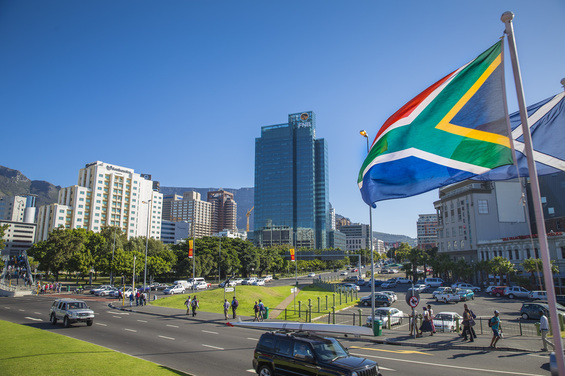

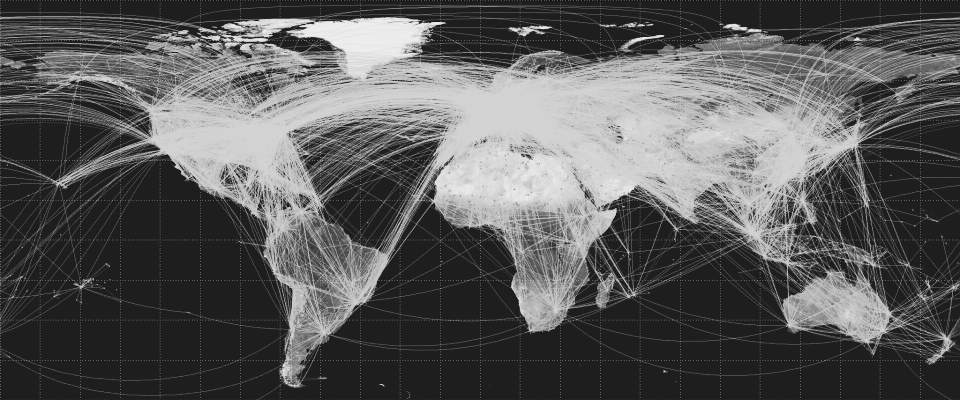
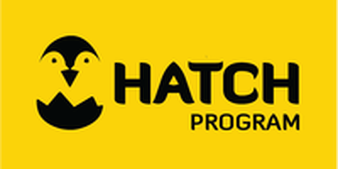
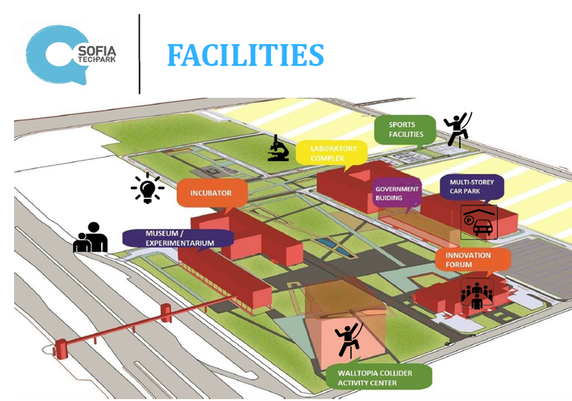
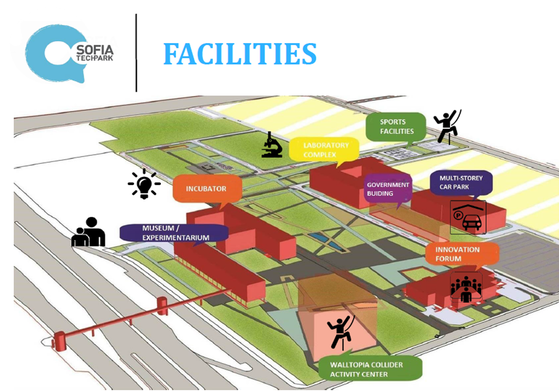


 RSS Feed
RSS Feed

